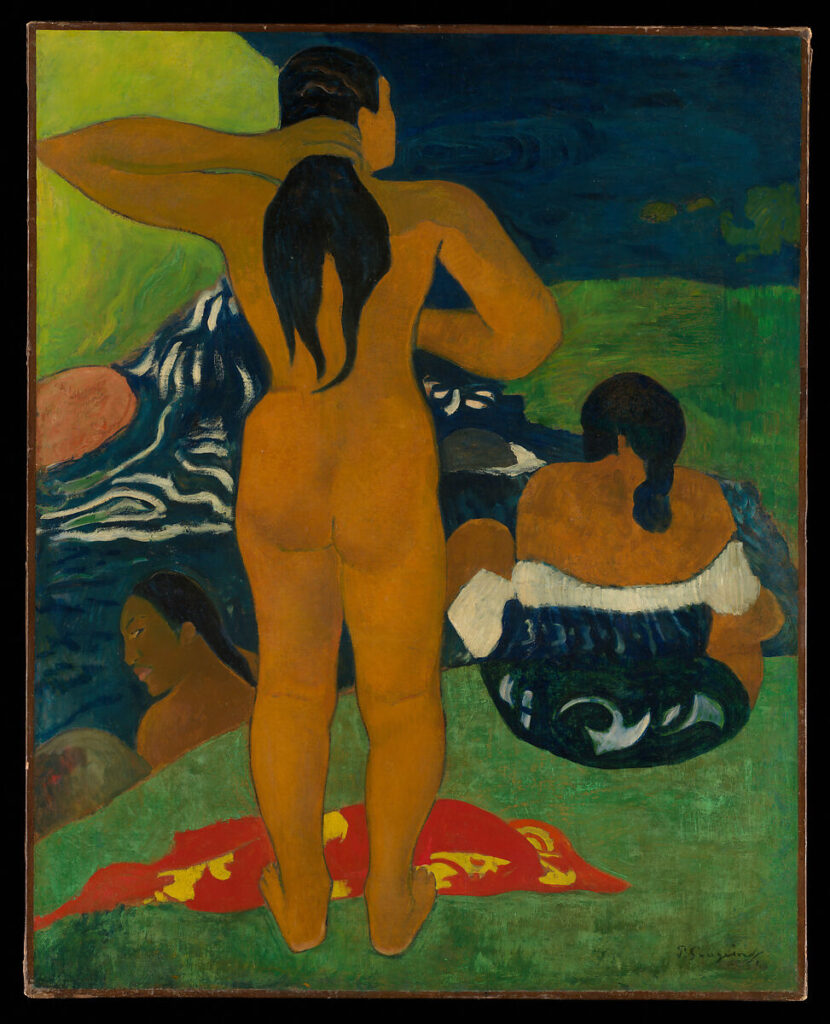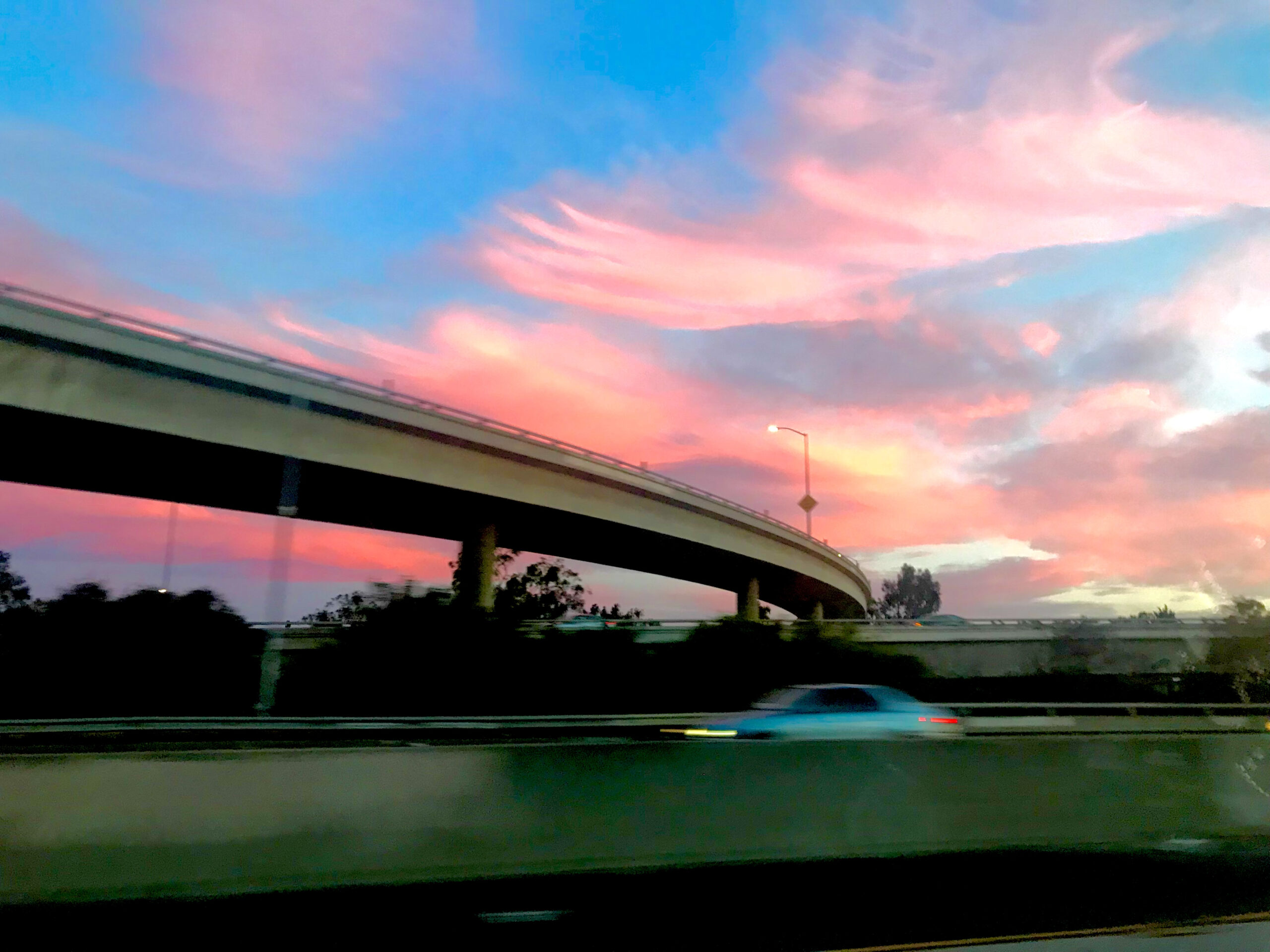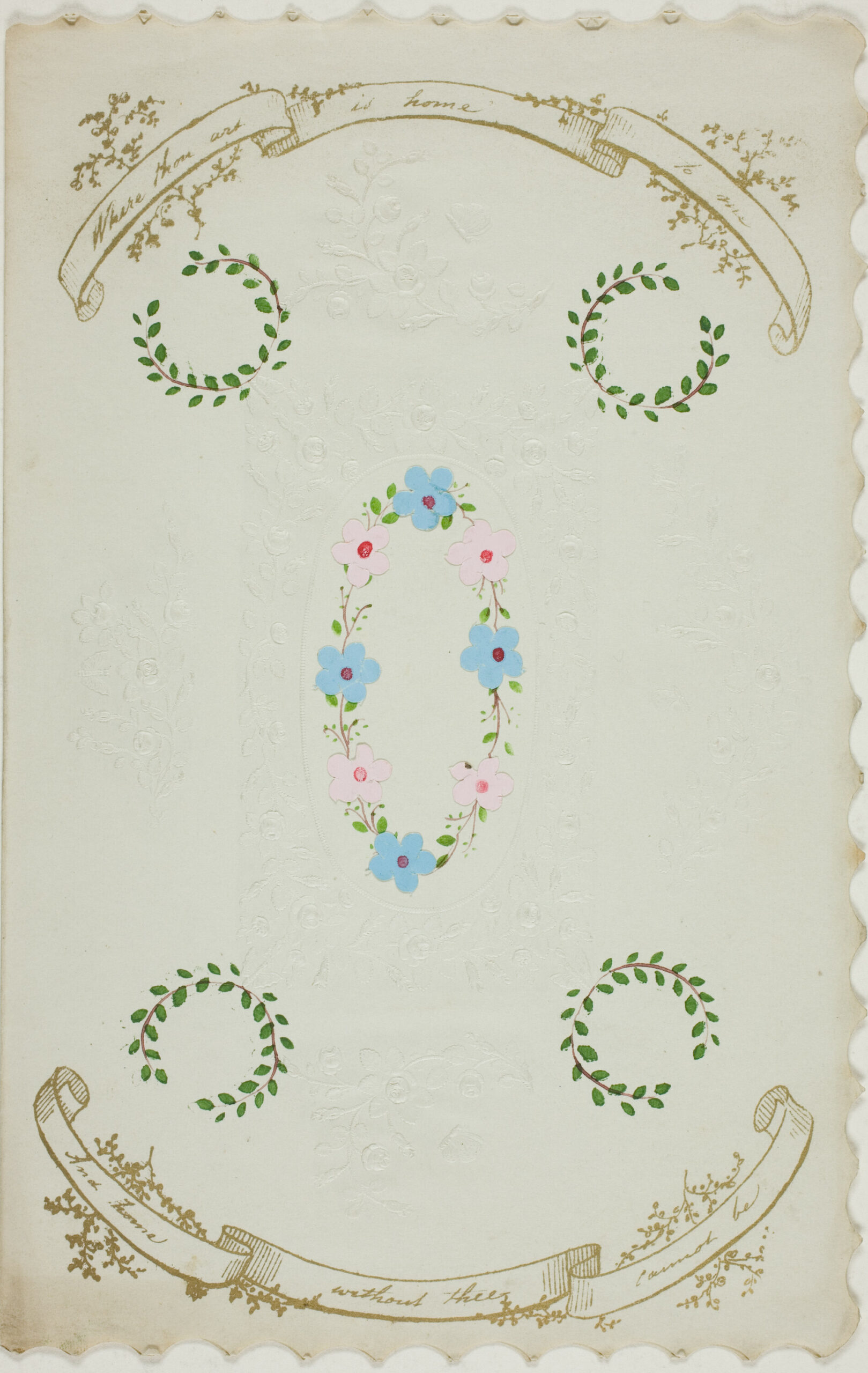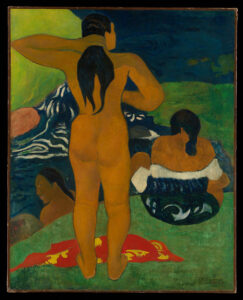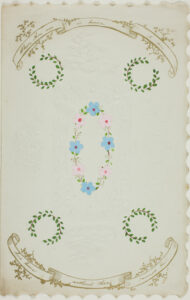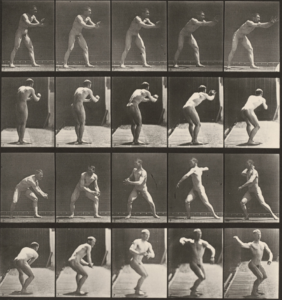On the Ass
Liza Flum
Today there are small bruises on your ass, not from biting or scratching or pinching like we sometimes do, but from daily needles and one milliliter of hormones.
I pull the skin tight over a square inch of your ass and sink the needle in, telling you what the nurse told me: “Wiggle your toes.”
Our days have become anchored by this ritual: you prepare a syringe, twist the needle cap off, and pull down your panties in the dining room to show me your ass, then grip the table as I slide the needle into your skin.
Our lives have, in some sense, always orbited around your ass. It is tempting to make a planetary comparison, but I don’t want you to think I am implying anything about the size or shape of your ass.
I was so bad at slapping your ass, we both laughed. I settled on other methods of admiration.
When we first fell in love I kept telling you how pretty you were, and then would apologize for objectifying you. I don’t think I ever objectified you, though, until I had to find an unbruised inch of your ass in which to administer progesterone.
I have a rule that I cannot write about your ass without also writing about my own ass.
This applies for all nakedness. I do not want to leave your bare ass alone, literally or metaphorically. To write about my own ass, then, is a kind of equalizing.
I admit to having a certain amount of vanity about my ass.
I sometimes exercise in shorts to make you notice my ass. “Indecent,” you said once in the kitchen and slipped your hands inside my spandex waistband.
However, I have never truly looked at my ass the way you can look at my ass. It is what I cannot see; it lives behind me. At a poetry reading an audience member asked the poet, “How heavy is your shadow satchel?” The thing I carry that I cannot fully grasp: is that my ass?
The phrase “Cover your ass” speaks to this; account for your vulnerabilities. I wonder if you will hate that I have written about your ass.
The shots hurt. You cannot carry anything in your back pockets for days, or climb the stairs. When I write about your pain, I am writing about your body in a way that feels even more exposed than describing your ass.
I think of my ass as a part of my body that’s completely mine. Not like my cunt, which seems somehow shared.
You will take the shots for three months after the embryo transfer. “Stick, baby, stick,” we say, crossing our fingers. For whom or what exactly are we injecting your ass? What parts of your body can be, should be shared?
The one time that your other love, August, and I touched your ass at the same time, we were administering a shot, trying to find a location in the upper left or right quadrant where the needle could sink into muscle.
“Side booty, under booty, top booty:” my barre instructor has many words for the ass. I never considered that my ass had facets until I found myself, leg extended behind me, using my pointed toes to draw circles in the air.
So exertion brings us against unnamed parts of ourselves and gives them names. Who am I when I hold a needle, pushing it into the muscle of your ass? Benevolent or bad doctor? I do not know what to call this part of me.
It’s also true that I cannot know you by regarding your ass. You point to the part I should inject today, feeling your own geography from inside your skin.
A tattoo artist once suggested that I get a fiddlehead fern tattooed along the side of my hip, up along my ass. “That’s a part of you that’s meant to move,” my friend said, grabbing her ass and jiggling it up and down. I asked for the fern on my firmer leg.
How do I write about my actual, grabbable ass? Is it a lie to think that my ass is only mine?
My ass moves, shifts, sags over time, just like my self does. Which is also not only mine.
If we become parents, I imagine my sense of self will be groped constantly, like unwelcome hands on my ass. Moms I know talk about feeling “touched out,” so handled and fondled by children that they only want to lie down alone.
When I lie down on my stomach for you, I am choosing to give you my ass to gaze at and grab. So much of what makes objectification pleasurable is choosing it.
Grasping the table before the shot, you are choosing but not choosing for me to see your ass. The small humiliations of a life that we undertake together, seeing and seen.
If I put my own ass in this essay, it doesn’t matter; I choose to expose it. I decide in what light it is seen. In no way is this equalizing.
When I was nineteen and sex was just starting, I had a girlfriend who was a speed reader; her dorm room floor was littered with books. Once, as I climbed into her bed, I caught a glimpse of Le Corps Lesbien: LES FESSES LES COUDES LES JAMBES LES ORTEILS LES PIEDS LES TALONS LES REINS LA NUQUE LA GORGE LA TÊTE LES CHEVILLES LES AINES LA LANGUE L’OCCIPUT L’ÉCHINE LES FLANCS LE NOMBRIL LE PUBIS LE CORPS LESBIEN. According to Google translate, “les fesses” means “buttocks” or “fanny,” not ass.
But I thought of “les fesses” as she touched my ass, tentative and gentle at first, and then with hard fingers. “Thank you,” she murmured later. I felt like she was not touching my ass, but the ass from Le Corps Lesbien.
To see my ass mapped onto language is to see a projection of my ass, separate from the part of me I sit on.
Does it matter that she was the partner who loved me least? I wonder whether, for her, my ass was a book’s illustration.
When I read you these pages, you ask if I can give your progesterone injection to the ass from Le Corps Lesbien. So an abstracted ass might become a decoy, a stand in for your pain.
“Here?” I say, pressing against your ass with my fingers. “No, here,” you say, placing your finger on the place you can bear the injection. I push the needle into your flesh: “It’s in. Halfway empty. Almost done.” When the syringe is empty, I count to five as instructed and withdraw the needle, and you slide your panties back over your ass.
It is a 30 second routine. Doing this, I touch your ass without truly touching your ass; leaving your privacy intact, I have a quick transaction with your skin.
In other words, giving you the shot, I ignore the ass beyond your ass. Even when I grab your ass, there is an ass on you that I do not reach.
I have never wanted to be mystified. “Stand in the mystery,” a poet once told me. Love, death, marriage: no mystery is diminished when regarded straight on. Together every afternoon, in the dining room, we stand gazing straight into this mystery: we are trying for a baby by injecting hormones into your ass.
I stand close behind you, one hand on the small on your back, the other cradling a syringe. I look your ass straight on.
Once, I admired a teacher. In his poems, women’s bodies are portals to the divine. I wrote poems like his, praising women. In this way, I learned that I was queer. It took me years to realize he was looking at my ass the whole time.
When I visited him in the nursing home, he rose from his wheelchair to kiss my hand. I read him books. A nurse bathed him and wiped his ass. He ate tiny bites of lemon bar from my friend’s fingers. In the end, his body was no longer his alone. One day he ran through the hallways brandishing his penis as if to say, Mine!
And of course, it is easier for me to write of a man’s ass than a woman’s. Which is not a comparison of beauties. When I describe a man’s ass, I do not feel the weight of millennia of looks and words behind my eyes, on my tongue.
When I look at your ass, are my eyes ever wholly mine?
You say that my desire to write about the ass is like my love of saying “fuck” and describing bugs in poems. “You love to break a tiny taboo,” you say, rendering me seen.
The fabled lost child is identified by the shape and color of a birthmark on his ass. We might be seen in any dimple or mole, any patch of rough skin. Still, I will not describe your ass, or mine.
The injection makes a surface into a depth. It pushes beyond your ass into the unseen. This is biological fact, not mystification.
Did I have an ass before it was imagined, or named?
I would like to get past “the ass.” To locate each other through the words we’ve been given; to push beyond that surface, into a wordless space. Where my ass is not my ass but a shape and skin.
Bending and extending my leg behind me, I reach out as the barre instructor tells me and place my own hand on my ass. I can feel under my hand how hard I am working.
You drift into the room to watch “the show,” as you call it, brushing your fingers across my ass as you walk into the dining room. Of my manifold asses, which one are you touching? Then you lift a syringe to prepare another day’s injection.


